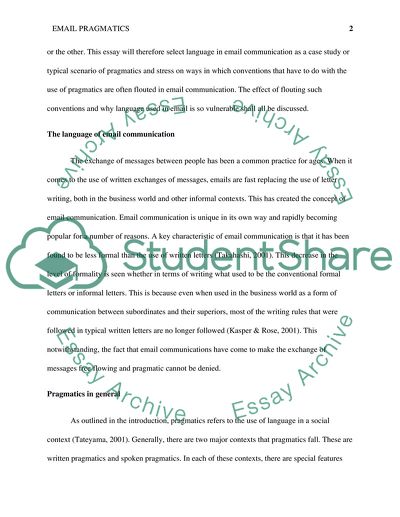Cite this document
(“Email Pragmatics Essay Example | Topics and Well Written Essays - 1750 words”, n.d.)
Retrieved from https://studentshare.org/humanitarian/1648915-email-pragmatics
Retrieved from https://studentshare.org/humanitarian/1648915-email-pragmatics
(Email Pragmatics Essay Example | Topics and Well Written Essays - 1750 Words)
https://studentshare.org/humanitarian/1648915-email-pragmatics.
https://studentshare.org/humanitarian/1648915-email-pragmatics.
“Email Pragmatics Essay Example | Topics and Well Written Essays - 1750 Words”, n.d. https://studentshare.org/humanitarian/1648915-email-pragmatics.


